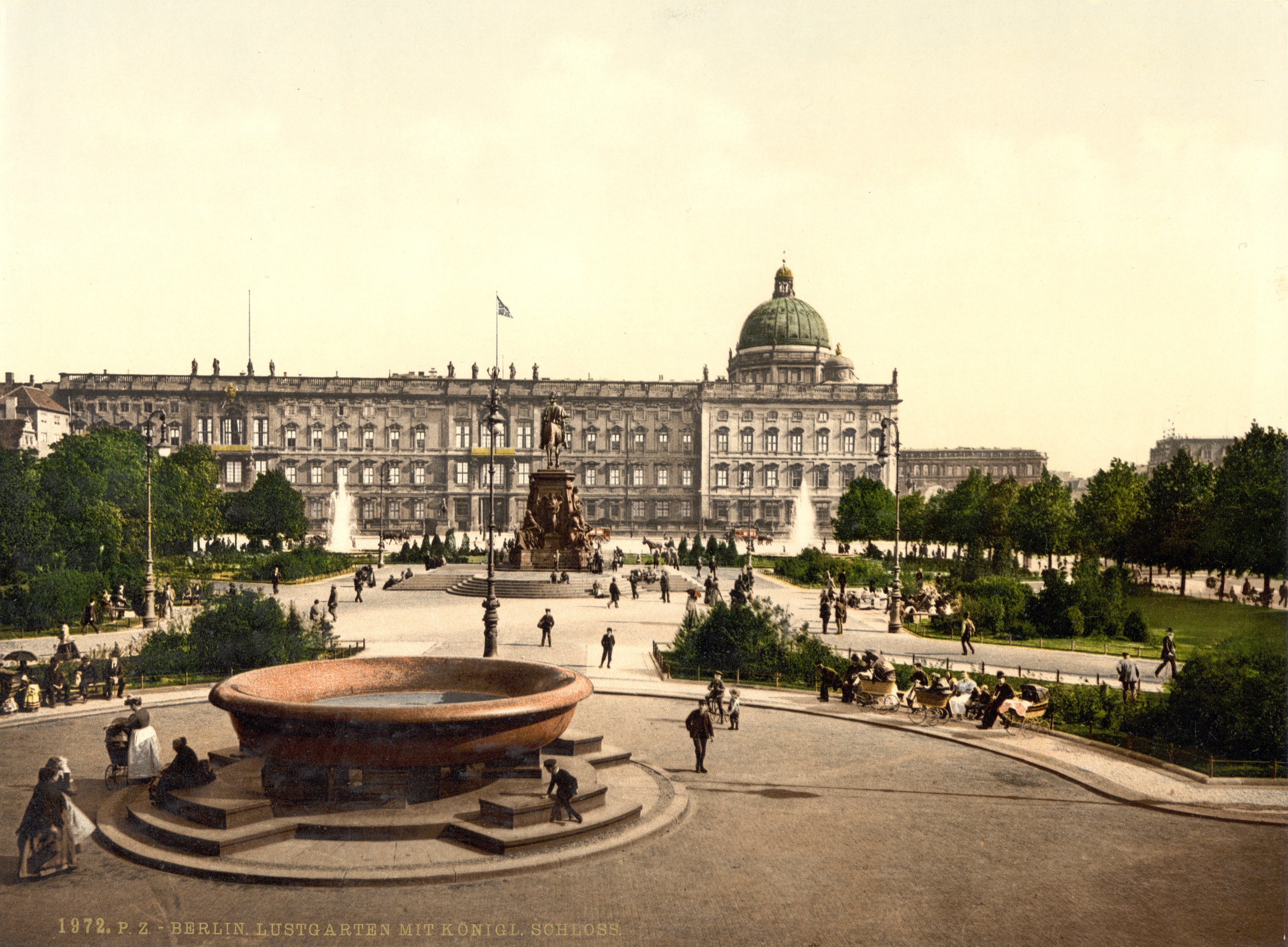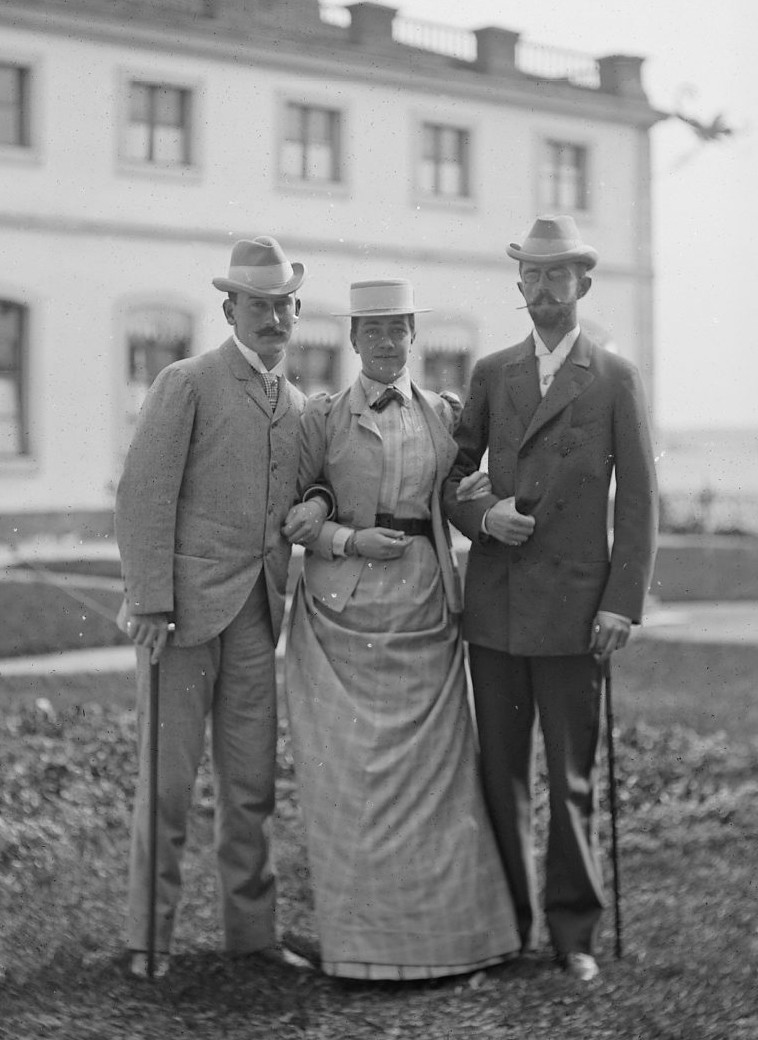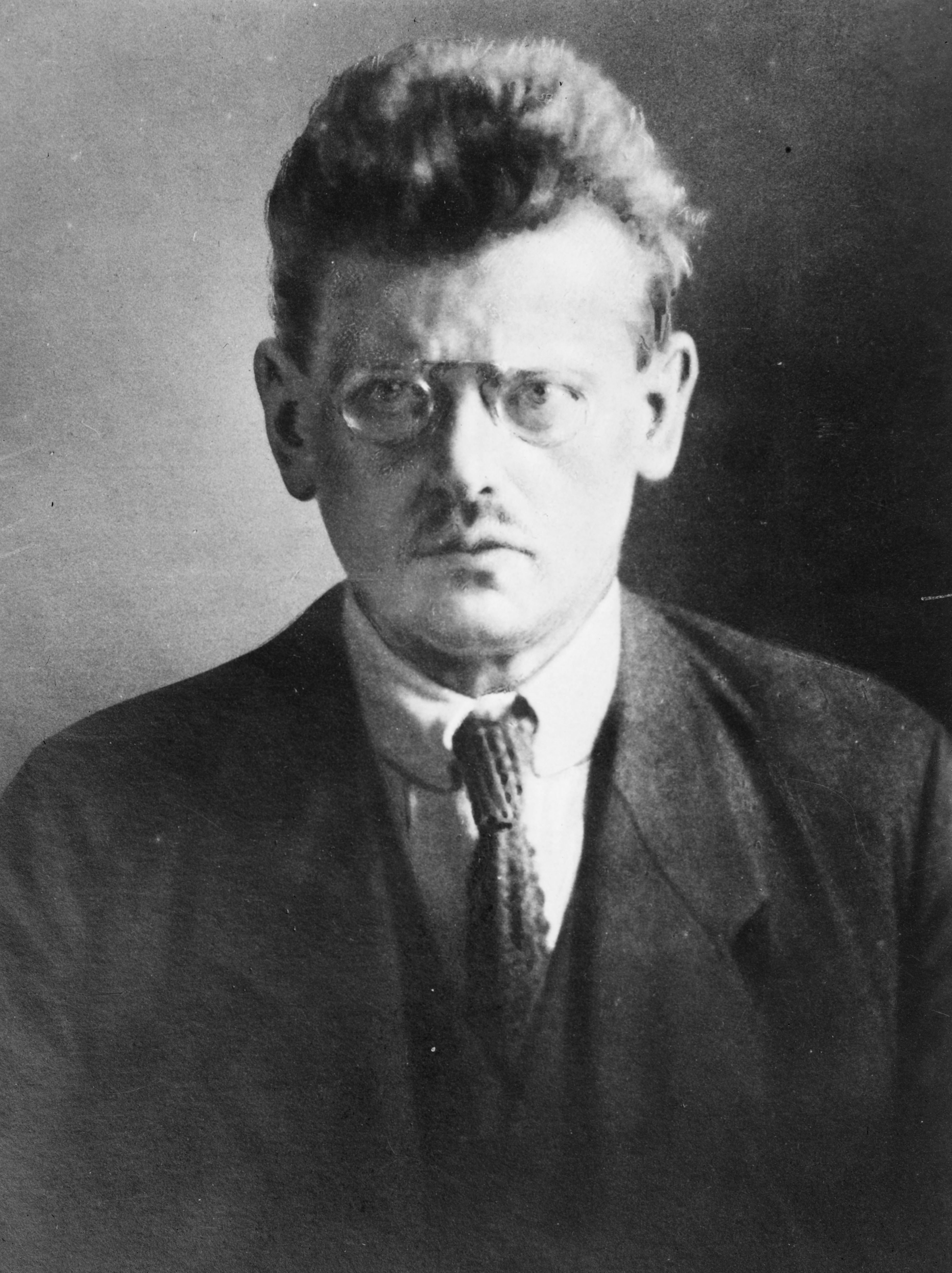|
1918 Christmas Crisis
The 1918 Christmas crisis ( or ; ) was a brief battle between the socialist revolutionary '' Volksmarinedivision'' and regular German army units on 24 December 1918 during the German Revolution of 1918–19. It took place at the Berlin Palace, the main residence of the House of Hohenzollern. Around 67 people were killed, and the event marked the point at which the hitherto largely bloodless revolution turned more violent. The fighting was the immediate cause for the more radical members to leave the revolutionary government and led to resentment among the workers against the Social Democratic government of Friedrich Ebert. This set the scene for the much larger-scale violence of January 1919 known as the Spartacist uprising. Since the revolutionary sailors defeated the regular army force sent against them, the engagement was also an important episode in the rise of the right-wing ''Freikorps'' on which the government increasingly relied. Background On 11 November 1918, the ... [...More Info...] [...Related Items...] OR: [Wikipedia] [Google] [Baidu] |
German Revolution Of 1918–19
German(s) may refer to: * Germany (of or related to) ** Germania (historical use) * Germans, citizens of Germany, people of German ancestry, or native speakers of the German language ** For citizens of Germany, see also German nationality law **Germanic peoples (Roman times) * German language **any of the Germanic languages * German cuisine, traditional foods of Germany People * German (given name) * German (surname) * Germán, a Spanish name Places * German (parish), Isle of Man * German, Albania, or Gërmej * German, Bulgaria * German, Iran * German, North Macedonia * German, New York, U.S. * Agios Germanos, Greece Other uses * German (mythology), a South Slavic mythological being * Germans (band), a Canadian rock band * "German" (song), a 2019 song by No Money Enterprise * ''The German'', a 2008 short film * "The Germans", an episode of ''Fawlty Towers'' * ''The German'', a nickname for Congolese rebel André Kisase Ngandu See also * Germanic (disambiguation ... [...More Info...] [...Related Items...] OR: [Wikipedia] [Google] [Baidu] |
Spartacus League
The Spartacus League (German: ''Spartakusbund'') was a Marxism, Marxist revolutionary movement organized in Germany during World War I. It was founded in August 1914 as the "International Group" by Rosa Luxemburg, Karl Liebknecht, Clara Zetkin, and other members of the Social Democratic Party of Germany (SPD) who were dissatisfied with the party's official policies in support of the war. In 1916 it renamed itself the Spartacus Group and in 1917 joined the Independent Social Democratic Party of Germany (USPD), which had split off from the SPD, as its left wing faction. During the November Revolution of 1918, November Revolution of 1918 that broke out across Germany at the end of the war, the Group re-established itself as a nationwide, non-party organization called the "Spartacus League" with the goal of instituting a Soviet republic (system of government), soviet republic that would include all of Germany. It became part of the Communist Party of Germany (KPD) when it was formed o ... [...More Info...] [...Related Items...] OR: [Wikipedia] [Google] [Baidu] |
Kurt Von Schleicher
Kurt Ferdinand Friedrich Hermann von Schleicher (; 7 April 1882 – 30 June 1934) was a German general and the last chancellor of Germany (before Adolf Hitler) during the Weimar Republic. A rival for power with Hitler, Schleicher was murdered by Hitler's SS during the Night of the Long Knives in 1934. Schleicher was born into a military family in Brandenburg an der Havel on 7 April 1882. Entering the Prussian Army as a lieutenant in 1900, he rose to become a General Staff officer in the Railway Department of the German General Staff and served in the General Staff of the Supreme Army Command during World War I. Schleicher served as liaison between the Army and the new Weimar Republic during the German Revolution of 1918–1919. An important player in the Reichswehr's efforts to avoid the restrictions of the Treaty of Versailles, Schleicher rose to power as head of the Reichswehr's Armed Forces Department and was a close advisor to President Paul von Hindenburg from 1926 onward. F ... [...More Info...] [...Related Items...] OR: [Wikipedia] [Google] [Baidu] |
Ebert–Groener Pact
The Ebert–Groener pact, sometimes called the Ebert-Groener deal, was an agreement between the Social Democrat Friedrich Ebert, at the time the Chancellor of Germany, and Wilhelm Groener, Quartermaster General of the German Army, on November 10, 1918. This occurred on the day after the German Revolution had brought Ebert to power. Groener assured Ebert of the loyalty of the armed forces. In return, Ebert promised that the government would take prompt action against leftist uprisings, that he would call a national assembly, that military command would remain with the professional officers corps and most importantly that the military would retain its traditional " state within the state" status. The agreement gave the government the means to defeat the challenge posed to its authority by those on the political left. However, it also drove a wedge between Ebert's Social Democratic Party and other socialist groups, who accused him of allying himself with the enemy of the revolution. ... [...More Info...] [...Related Items...] OR: [Wikipedia] [Google] [Baidu] |
Kassel
Kassel (; in Germany, spelled Cassel until 1926) is a city on the Fulda River in northern Hesse, Germany. It is the administrative seat of the Regierungsbezirk Kassel and the district of the same name and had 201,048 inhabitants in December 2020. The former capital of the state of Hesse-Kassel has many palaces and parks, including the Bergpark Wilhelmshöhe, which is a UNESCO World Heritage Site. Kassel is also known for the '' documenta'' exhibitions of contemporary art. Kassel has a public university with 25,000 students (2018) and a multicultural population (39% of the citizens in 2017 had a migration background). History Kassel was first mentioned in 913 AD, as the place where two deeds were signed by King Conrad I. The place was called ''Chasella'' or ''Chassalla'' and was a fortification at a bridge crossing the Fulda river. There are several yet unproven assumptions of the name's origin. It could be derived from the ancient ''Castellum Cattorum'', a castle of the ... [...More Info...] [...Related Items...] OR: [Wikipedia] [Google] [Baidu] |
Oberste Heeresleitung
The ''Oberste Heeresleitung'' (, Supreme Army Command or OHL) was the highest echelon of command of the army (''Heer'') of the German Empire. In the latter part of World War I, the Third OHL assumed dictatorial powers and became the ''de facto'' political authority in the empire. Formation and operation After the formation of the German Empire in 1871, the Prussian Army, Royal Saxon Army, Army of Württemberg and the Bavarian Army were autonomous in peacetime, each kingdom maintaining a separate war ministry and general staff to administer their forces. On the outbreak of war, the Constitution of the German Empire made the German Emperor Commander-in-Chief of the combined armies (''Oberster Kriegsherr'', Supreme Warlord). The Emperor's role as Commander-in-Chief was largely ceremonial and authority lay with the Chief of the German General Staff, who issued orders in the Emperor's name. The pre-war Chief of the General Staff was Colonel General Helmuth von Moltke (The Younger) an ... [...More Info...] [...Related Items...] OR: [Wikipedia] [Google] [Baidu] |
Maximilian Of Baden
Maximilian, Margrave of Baden (''Maximilian Alexander Friedrich Wilhelm''; 10 July 1867 – 6 November 1929),Almanach de Gotha. ''Haus Baden (Maison de Bade)''. Justus Perthes, Gotha, 1944, p. 18, (French). also known as Max von Baden, was a German prince, general, and politician. He was heir presumptive to the throne of the Grand Duchy of Baden, and in October and November 1918 briefly served as the last chancellor of the German Empire and minister-president of Prussia. He sued for peace on Germany's behalf at the end of World War I based on U.S. President Woodrow Wilson's Fourteen Points, which included immediately transforming the government into a parliamentary system, by handing over the office of chancellor to SPD Chairman Friedrich Ebert and unilaterally proclaiming the abdication of Emperor Wilhelm II. Both events took place on 9 November 1918, the beginning of the Weimar Republic. Early life Born in Baden-Baden on 10 July 1867, Maximilian was a member of the House of ... [...More Info...] [...Related Items...] OR: [Wikipedia] [Google] [Baidu] |
Emil Barth
Emil Barth (Heidelberg, 23 April 1879 – Berlin, 17 July 1941) was a German Social Democratic party worker and socialist politician who became a key figure in the German Revolution of 1918. Life Barth joined the anti-war Independent Social Democratic Party (USPD) in 1917, and became leader of the revolutionary shop stewards in January 1918. He was one of six members of the Council of the People's Deputies (Rat der Volksbeauftragten) created on 10 November 1918 in Berlin to govern Germany after Kaiser Wilhelm II had abdicated and the Republic had been proclaimed by Karl Liebknecht and Philipp Scheidemann. Three members of the Council were Majority Social Democrats (Ebert, Scheidemann and Landsberg), and three were Independent Social Democrats (Haase, Dittmann and Barth). While the former two USPD commissioners were moderate and interested in conciliation with the MSPD, Barth was the most left-wing, associated with Karl Liebknecht, who refused to serve on the Council because it ... [...More Info...] [...Related Items...] OR: [Wikipedia] [Google] [Baidu] |
Sebastian Haffner
Raimund Pretzel (27 December 1907 – 2 January 1999), better known by his pseudonym Sebastian Haffner, was a German journalist and historian. As an émigré in Britain during World War II, Haffner argued that accommodation was impossible not only with Adolf Hitler but also with the German ''Reich'' with which Hitler had gambled. Peace could be secured only by rolling back "seventy-five years of German history" and restoring Germany to a network of smaller states. As a journalist in West Germany, Haffner's conscious effort "to dramatize, to push differences to the top," precipitated breaks with editors both liberal and conservative. His intervention in the Spiegel affair of 1962, and his contributions to the "anti-fascist" rhetoric of the student New Left, sharply raised his profile. After parting ways with Stern (magazine), ''Stern'' magazine in 1975, Haffner produced widely read studies focussed on what he saw as fateful continuities in the history of the German Reich (1871– ... [...More Info...] [...Related Items...] OR: [Wikipedia] [Google] [Baidu] |
Majority Social Democratic Party Of Germany
The Majority Social Democratic Party of Germany (german: Mehrheitssozialdemokratische Partei Deutschlands, MSPD) was the name officially used by the Social Democratic Party of Germany (SPD) during the period 1917-1922. This differentiated it from the more left wing Independent Social Democratic Party of Germany (german: Unabhängige Sozialdemokratische Partei Deutschlands, USPD). Nevertheless they were often simply called the SPD. The split Prior to the war there had been much discussion about opposing the impending war amongst the SPD, but once the war started the SPD agreed on a political truce or Burgfriedenspolitik whereby despite their disagreements none of the MPs voted against war credits. Originally even Karl Liebknecht only abstained, although in 1914 he voted against war credits. Then in December 1915 20 MPs from the SPD issued a statement in the Reichstag against the truce. Those 20 MPs from the SPD opposed the war loans in the chamber. During the revolution Gustav ... [...More Info...] [...Related Items...] OR: [Wikipedia] [Google] [Baidu] |
Reich Chancellery
The Reich Chancellery (german: Reichskanzlei) was the traditional name of the office of the Chancellor of Germany (then called ''Reichskanzler'') in the period of the German Reich from 1878 to 1945. The Chancellery's seat, selected and prepared since 1875, was the former city palace of Prince Antoni Radziwiłł (1775–1833) on Wilhelmstraße in Berlin. Both the palace and a new Reich Chancellery building (completed in early 1939) were seriously damaged during World War II and subsequently demolished. Today the office of the German chancellor is usually called '' Kanzleramt'' (Chancellor's Office), or more formally ''Bundeskanzleramt'' (Federal Chancellor's Office). The latter is also the name of the new seat of the Chancellor's Office, completed in 2001. Old Reich Chancellery When the military alliance of the North German Confederation was reorganised as a federal state with effect from July 1, 1867, the office of a Federal Chancellor ''(Bundeskanzler)'' was implemented at Ber ... [...More Info...] [...Related Items...] OR: [Wikipedia] [Google] [Baidu] |
Bundesarchiv Bild 146-1977-074-08, Volksbeauftragte Landsberg, Scheidemann, Noske, Ebert, Wissell
, type = Archive , seal = , seal_size = , seal_caption = , seal_alt = , logo = Bundesarchiv-Logo.svg , logo_size = , logo_caption = , logo_alt = , image = Bundesarchiv Koblenz.jpg , image_caption = The Federal Archives in Koblenz , image_alt = , formed = , preceding1 = , preceding2 = , dissolved = , superseding1 = , superseding2 = , agency_type = , jurisdiction = , status = Active , headquarters = PotsdamerStraße156075Koblenz , coordinates = , motto = , employees = , budget = million () , chief1_name = Michael Hollmann , chief1_position = President of the Federal Archives , chief2_name = Dr. Andrea Hänger , chief2_position ... [...More Info...] [...Related Items...] OR: [Wikipedia] [Google] [Baidu] |




_1572.jpg)



